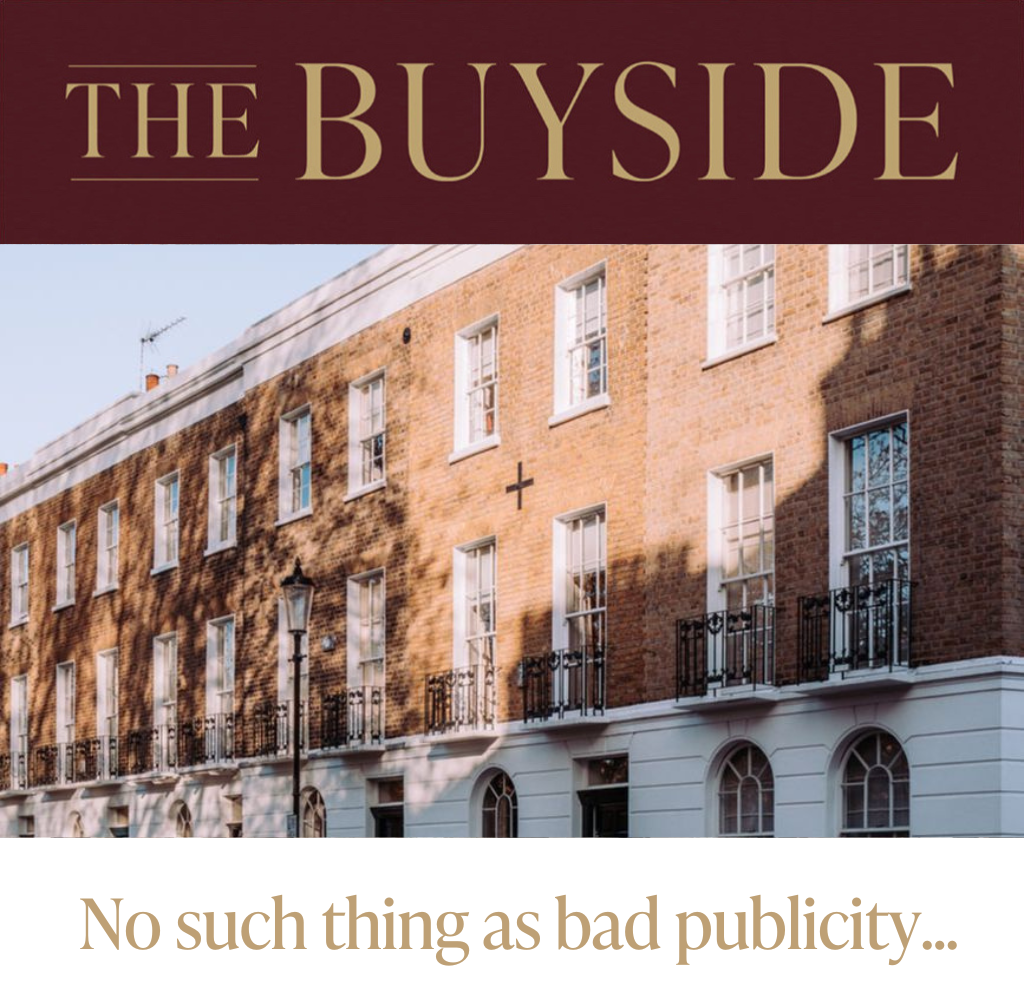
Oscar Wilde observed that “the only thing worse than being talked about is not being talked about.” Phineas Taylor Barnum, the showman immortalised in The Greatest Showman, put it more bluntly: “there is no such thing as bad publicity.” Both might be surprised at how little comfort their aphorisms provide in the UK today, where the prevailing narrative has turned decidedly bleak.
Thankfully, for a brief moment as we put pen to paper, the spotlight has shifted to France, which has just lost its fifth Prime Minister in as many years – a welcome reminder that political turbulence is not a uniquely British phenomenon.
The chorus of current criticism directed towards the UK does though feel unfairly amplified. Algorithms appear to enjoy spinning the “Britain in decline” narrative, funnelling stories of political chaos, economic malaise, social unrest, uncontrolled immigration, and even the end of free speech. Whilst the UK is undoubtedly facing some significant political and economic headwinds, we can’t help but feel that so much of the adverse news being propagated is a product of echo chambers and the algorithmic incentives that sustain them.

Pressing concerns
An imminent change to the political leadership has also been overstated. Whilst current commentary might suggest that Reform is on the brink of ascending into No. 10, the immediate reality is otherwise. With a parliamentary majority of 172, there is no prospect of a general election before 2029 without the Government calling one, in a move that would surely be an act of political self-destruction given current polling figures. Even a change of Labour leader, and thus a change of Prime Minister, is far from certain: in modern times, Labour has never replaced a sitting Prime Minister mid-term, a manoeuvre considered to be more of a Conservative trait!
The more immediate challenge for the Government, and for our market, is the delayed Budget on 26 November 2025. Prior to the last election, Rachel Reeves had committed to delivering one major fiscal event each year. The rationale, in her words, was “to give families and businesses the stability and certainty they need and, in turn, to support the government’s growth mission.” This was an ambition worth applauding and one we continue to support. However, we cannot enjoy stability and certainty when the months between fiscal events are dominated by speculation and selective briefing. To float potential tax measures in public and then leave businesses and households to guess which will materialise, is both frustrating and destabilising.
In recent months, so many possibilities have been leaked, debated and dissected: we have seen reports of a possible wealth tax; further reforms to the non-dom changes (particularly around inheritance tax and excluded property trusts); the revival of an investor visa; a new levy on homes valued above £500,000; an overhaul of stamp duty (now ambushed by Kemi Badenoch); the removal of principal private residence relief for properties over £1.5m; and a mooted increase to non-resident stamp duty, to name but a few. The effect is a market shaped less by fundamentals and more by supposition and hearsay.
We can, however, be fairly certain that taxes will rise on Budget Day. What is unclear is whether the Chancellor will apply yet another sticking plaster, raising just enough revenue to meet her fiscal rules in the least politically contentious ways, or whether she will take a more dramatic course – perhaps rowing back on the election promises not to raise the three main taxes. The latter would likely be with the view that bond markets must be appeased more urgently than the electorate, or that voters will accept her argument that external pressures have forced her hand (a narrative she started to frame in her recent party conference speech).
Perhaps Rachel Reeves should listen to Ken Clarke’s reflections on his own time as Chancellor when he noted that “we didn’t take any notice of opinion polls, we knew we were extremely unpopular, and we didn’t have a popular policy in our portfolio.” Whilst it might not win hearts and minds today, someone needs to make some hard decisions for the longer-term recovery of the UK economy.

Market reaction
For London’s prime residential markets, the delay to the Budget and the uncertainty surrounding its content has been damaging. In the knowledge that taxes would rise and coupled with kite-flying and wild speculation around property and wealth taxes, the mood music has been sombre, and the market has palpably slowed. The Labour Party’s deputy leadership election, which has become a proxy debate about Labour’s ideological direction (with its calls for wealth taxes, property levies and redistribution measures), has further unseated market stakeholders.
Yet, surprisingly, performance in Q1-Q3 2025 has broadly mirrored long-term averages. We have tracked 83 transactions over £10m against a 12-year average of 94 trades. In H1 2025 we recorded 18 transactions over £20 million, which is just 1 short of the 12-year average. In Q3 2025, we have seen a sharper fall in £20m+ transactions, with just 5 transactions going through compared to a 12-year average of 8. For the headline grabbers amongst us, that’s an alarmist 40% down on average trading data, yet only a difference of 3 trades in real terms!
The research tells a clear story that the market has slowed since the heady days of the post-pandemic global property boom (2020-2023), with the data suggesting volumes are down as much as c. 40% across the £10m plus categories. That said, the figures also show a market that is still performing ahead of pre-pandemic (c. 2015 to 2020) averages. Surprisingly, the £10-15m segment of the market has been a standout performer in Q3 2025 beating the 12-year average, perhaps indicating that this value-band has been less impacted by recent tax changes.
Notwithstanding this, the market remains highly segmented, with the best properties quietly trading (often competitively) whilst compromised properties continue to struggle with liquidity as their values soften. We know of one best-in-class house that recently attracted ten rounds of bidding and sold well above its seven-figure asking price within days. Meanwhile, nearby houses of lesser quality have struggled to trade even after successive reductions and more than a year on the market. This is a reminder to us all that quality remains the decisive determinant of liquidity and value.
In our opinion, much of the commentary in circulation from our peers around discounting misrepresents the real dynamics at play in the market. Where price adjustments do occur, they often reflect a correction to a previously inflated asking price, rather than evidence of a market in precipitous decline. Opportunities do exist, particularly for properties requiring complex or capital-intensive projects – as well as the rump of units in some of the super prime new build developments with high levels of debt service – but most of our clients remain focused on acquiring special homes with limited frictional costs and tangible long-term value. We continue to warn those chasing discounts that the discount is usually illusory!
In some respects, the issue with comparing trading periods is that we no longer know what a “normal” market looks like: references to 2019 figures are distortive given the Corbyn risk that year; pre-pandemic averages were dampened by Brexit and rising SDLT; whilst post-pandemic figures reflect a global prime property boom that has since tapered. What we can say is that there has not been a cliff-edge in transaction volumes – broadly because there remain very few forced sellers at the top end of the London market – but rather a slowdown to take heed of the changing landscape. Given the proliferation of leaked announcements and hyperbolic headlines – combined with the delayed Budget – a further contraction in transactional volumes appears likely in Q4 2025.

Amid the noise, it is worth remembering that London remains one of the largest and most mature markets in the world. According to Knight Frank’s latest global data, and even during an undoubtedly challenging moment, it remains the fourth largest market globally for US$10m+ transactions, behind only Dubai, Los Angeles and New York. Paris and Geneva are the only other European cities to make the top ten, each area representing a mere fraction of London’s trading power.
For now, we expect the London market will remain the preserve of the focused, needs-based buyer. Discretionary buyers may decide to await the outcome of the Budget and, whilst some would like to suggest that they will be missing out on a buying “opportunity,” we have never advised clients to run the “fool’s errand” of timing the market. When a client asked us recently if now was a “good time to buy,” we told him what matters more is what you buy, not when you buy it.
